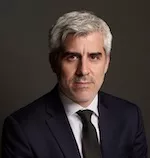The recent riots in various parts of England earlier this month have sparked controversy on whether governments should take control and shut down social networks in times of social disorder bringing up the eternal question on how our civil liberties and government control can be balanced on the web and beyond.
Smartphones were at the very centre of the various revolutions that spread throughout North Africa earlier this year. Protesters ranging from Tunisia to Egypt made good use of instant messaging and social networking sites to get together but can one go as far as to claim that the London riots were the direct result of the abuse of technology?
During an emergency recall of the British Parliament, David Cameron unequivocally stated that "everyone watching these horrific actions will be struck by how they were organised via social media" and confirmed that government was working with the police, the intelligence services and the industry to look at whether it would be right to stop people communicating via social networks and services like the BlackBerry Messenger service when such services are used to plot violence, disorder and criminality. Cameron has also called for an urgent meeting between the Home Secretary Theresa May and representatives from Research in Motion(RIM) , Twitter and Facebook in order to discuss the obligations of such providers in times of civil unrest. These developments have irked many civil liberties campaigners who argue that events like the recent riots would be the prime excuse to attack civil liberties.
The use of social networks has in fact already assisted in the conviction of rioters in the UK. Two youths in their early twenties were both jailed for four years each by Chester Crown Court for inciting crime during the recent riots through posts on Facebook. One of the convicted individuals had even created a Facebook event titled "Smash down in the Northwich Town". They have undoubtedly felt the "full force of the law" now. Representatives of Facebook noted that it had received numerous reports from users who were also reporting comments and misuse of service to its own staff as well as to the authorities.
It is believed that Blackberry instant messaging system was also used by many rioters in order to co-ordinate their movements and the London police have confirmed that they have relied on information transmitted via Twitter and the Blackberry Instant messaging service to thwart a number of attacks which were being planned on the new Olympic site as well as on Oxford Street. This was confirmed by acting Met Police Commissioner Tim Godwin who said that he had considered asking authorities to switch off social networks. But whilst it is evident that new technologies such as social media and instant messaging were actively used by the rioters, one has to be cautious as to what extent authorities should rely on this information in cases such as the London riots. It is clear that one has to be very careful in order to distinguish between incitement to riot or just plain online noise. Stupidly, some rioters chose to give a real-time account of their exploits using twitter and instant messaging through smartphones. Others challenged the very definition of "daft" by posting pictures of themselves proudly posing in front of a new flat-screen tv they had just nicked. But one should not be led to believe that people sitting comfortably on their couches at home watching the chaos unravel through their televisions were not posting silly remarks on twitter. Surely, that would not make them guilty of inciting people to commit crimes.
Godwin further commented that whilst the police were receiving huge amounts of electronic intelligence, much of the information coming via social media was obviously "wrong and very silly" especially when one considers that there were many posts by young children who just wanted to join the fray in a virtual manner without taking to the streets. The fact that many young people wanted to feel part of this group without actually actively participating in the riots is definitely a social phenomenon which has to be analysed and addressed but would this make them criminals?
Under the UK's Regulation of Investigatory Powers Act (RIPA), British police can apply for details of customers' phone records, including their location, details of calls made and received and internet activity, something that is also possible under similar Maltese regulations. However requests by the police need to be specific to identified suspects. The suggested switching off of social networks though goes far beyond the provisions of RIPA and many question the legality of such drastic measures not only on the basis of civil liberties.
Whilst it is doubtful that the United Kingdom will eventually take further steps to attempt to control social media services through the shutting down of such networks one cannot rule out the potential possibility that the RIPA will be further strengthened to assist investigators. In the meantime, even the Metropolitan police started making use of social networks by setting up a flickr service containing all the CCTV stills of offenders and asking the general public for information.
The content of this article is intended to provide a general guide to the subject matter. Specialist advice should be sought about your specific circumstances.
